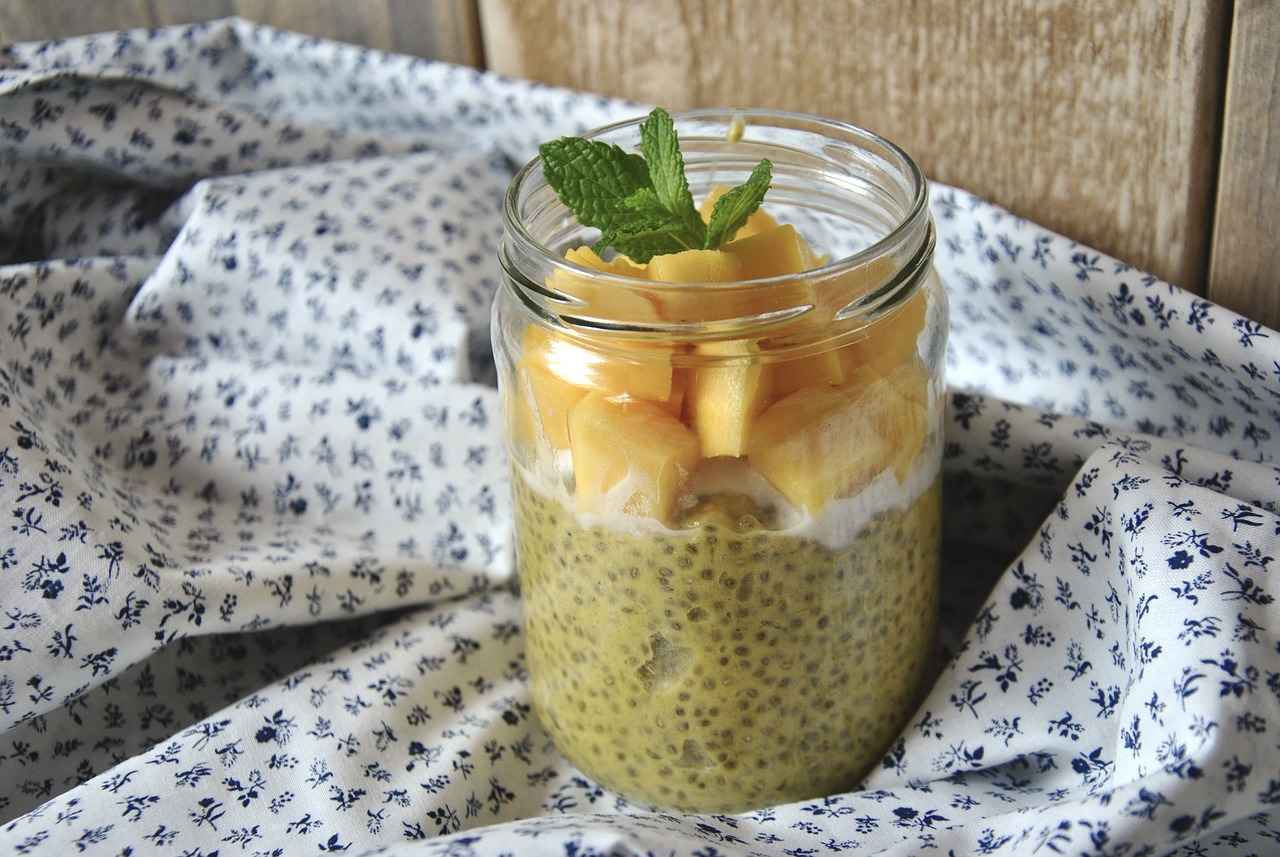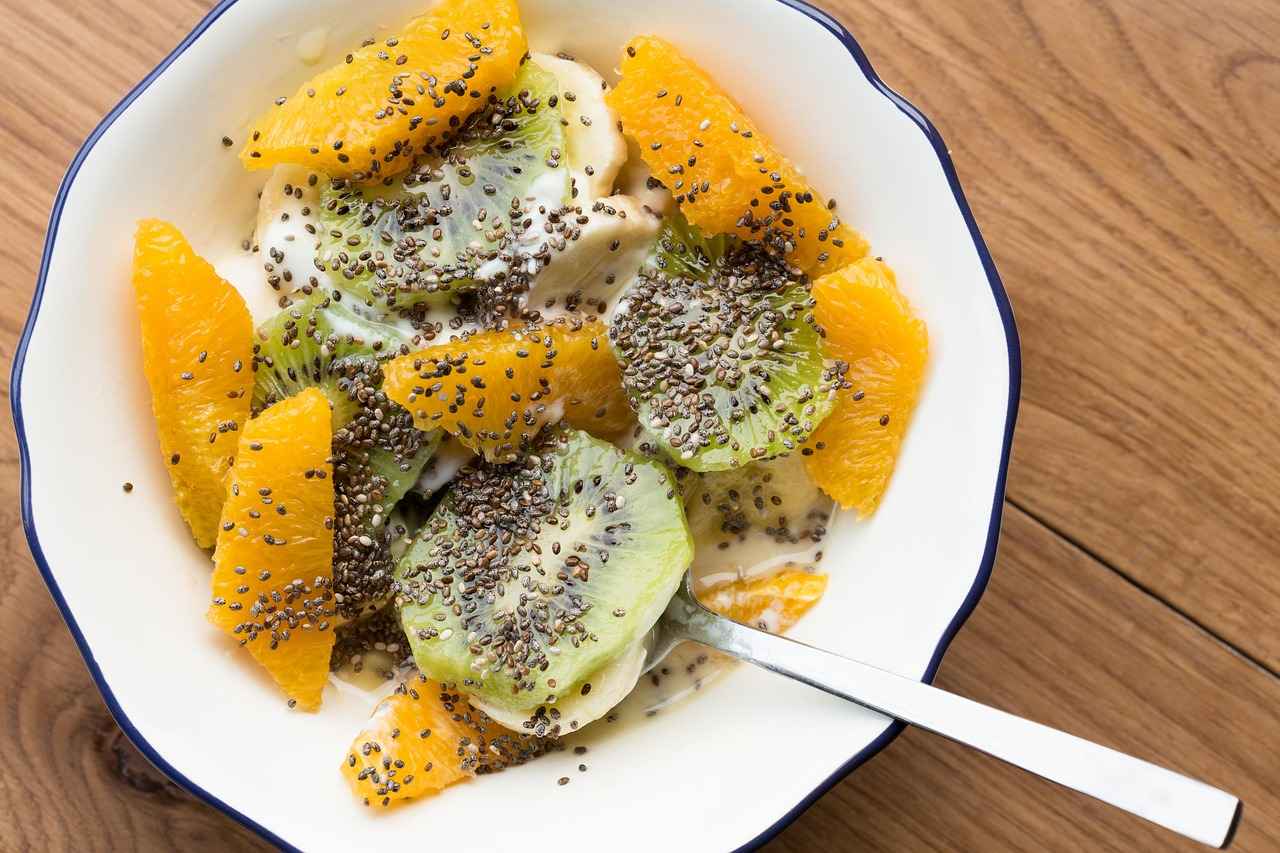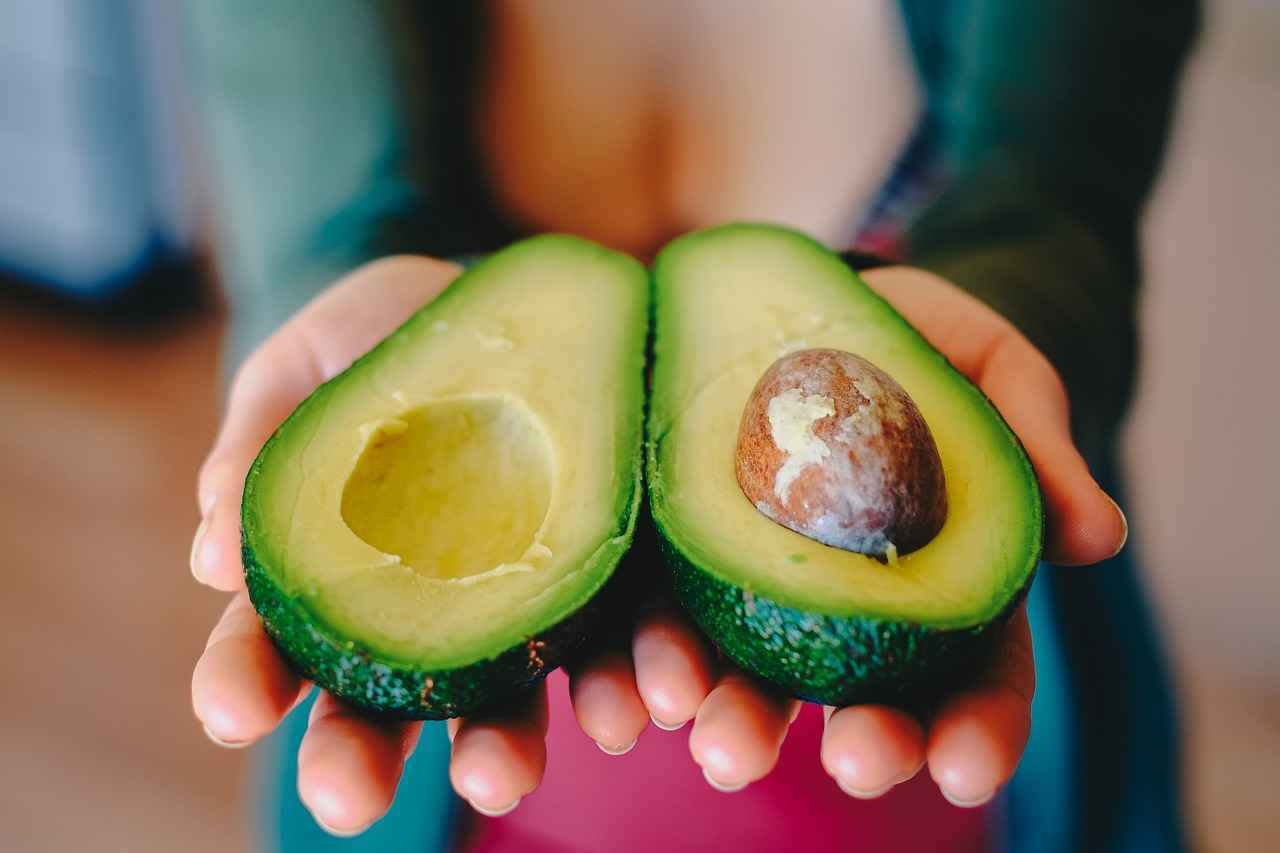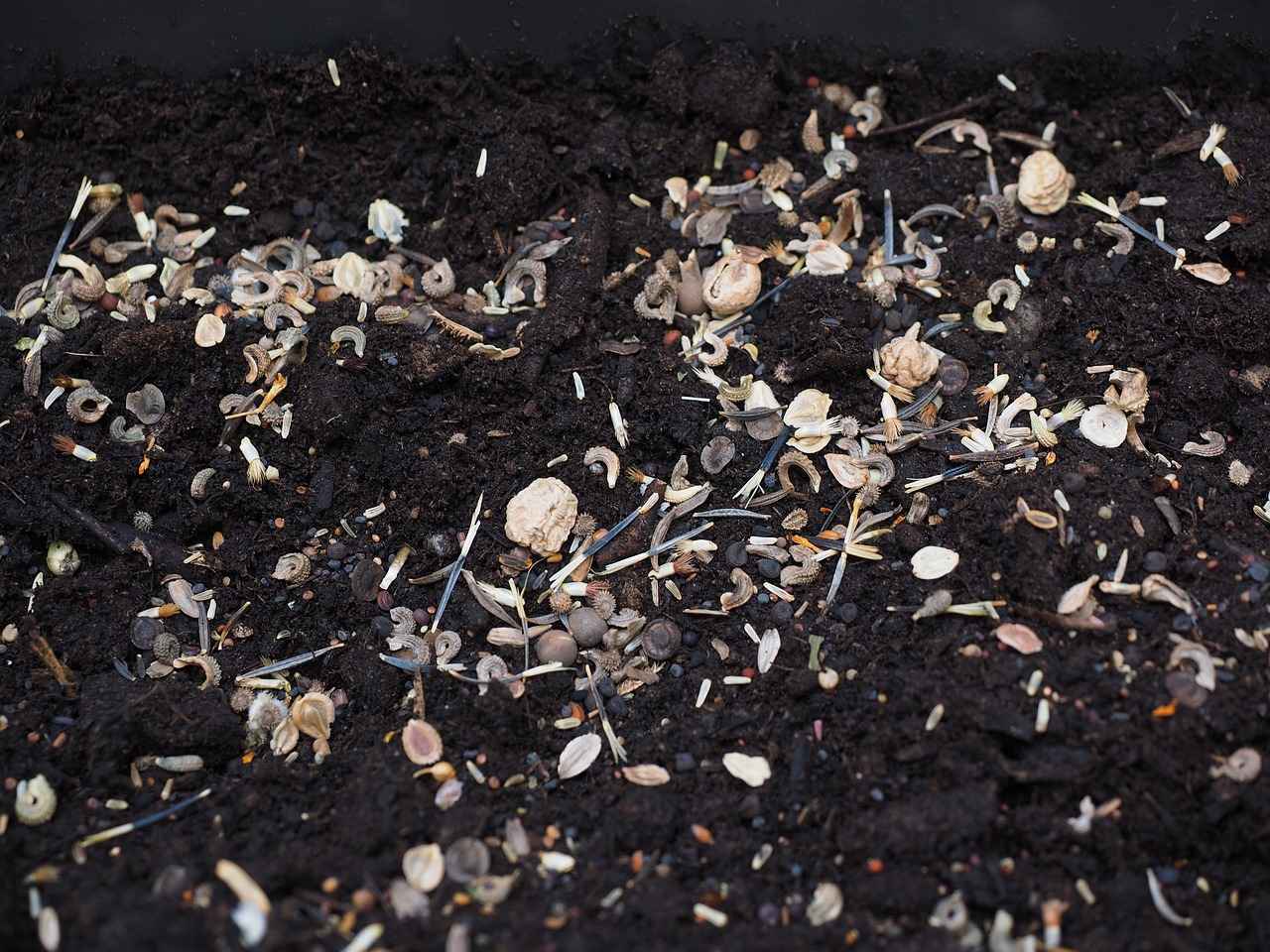This article delves into the potential benefits of chia seeds for weight loss, focusing on their nutritional profile, effects on appetite, and contributions to overall health. By examining these factors, we aim to provide a comprehensive understanding of how chia seeds can be a valuable addition to your weight loss journey.
What Are Chia Seeds?
Chia seeds are tiny, nutrient-dense seeds obtained from the Salvia hispanica plant. They are celebrated for their impressive nutritional profile, which includes high levels of fiber, protein, and omega-3 fatty acids. This unique combination makes them a popular choice among health enthusiasts and a staple in many diets.
How Do Chia Seeds Aid Weight Loss?
One of the primary ways chia seeds can assist in weight loss is through their remarkable ability to absorb water. When consumed, they can expand up to 12 times their original size in the stomach, leading to a significant feeling of fullness. This can help to reduce overall calorie intake, making it easier to manage weight.
What Nutrients Are Found in Chia Seeds?
Chia seeds are packed with essential nutrients. They contain:
- Fiber: Promotes digestive health and aids in satiety.
- Protein: Supports muscle maintenance and repair.
- Healthy Fats: Omega-3 fatty acids contribute to heart health.
- Vitamins and Minerals: Including calcium, magnesium, and phosphorus.
This nutrient density contributes to a balanced diet and supports overall health while promoting weight loss.
Do Chia Seeds Suppress Appetite?
Research indicates that the high fiber content in chia seeds can effectively suppress appetite. By slowing digestion and promoting a prolonged feeling of fullness, chia seeds may lead to reduced food intake, which is beneficial for weight management.
Can Chia Seeds Improve Metabolism?
Chia seeds may also play a role in enhancing metabolism. Their combination of protein and fiber can aid in fat burning and increase energy expenditure, thus supporting weight loss efforts.
How to Incorporate Chia Seeds into Your Diet?
Incorporating chia seeds into your daily meals is simple and versatile. Here are some ideas:
- Add them to smoothies for a nutritional boost.
- Mix them into yogurt or oatmeal for added texture.
- Use them in baked goods as an egg substitute or topping.
What Are the Potential Side Effects of Chia Seeds?
While chia seeds are generally safe for most people, consuming them in excessive amounts can lead to digestive issues such as bloating or discomfort. It is essential to consume them in moderation to reap their benefits without adverse effects.
Are There Any Studies Supporting Chia Seeds for Weight Loss?
Several studies suggest that chia seeds may support weight loss, but results can vary based on individual dietary habits and lifestyle factors. More extensive research is necessary to provide conclusive evidence on their effectiveness.
How Do Chia Seeds Compare to Other Superfoods?
Chia seeds are often compared to other superfoods like flaxseeds and quinoa. While each has unique benefits, chia seeds are particularly noted for their high fiber content and versatility in recipes, making them a valuable addition to any diet.
What Are Expert Opinions on Chia Seeds and Weight Loss?
Nutrition experts generally agree that while chia seeds can be a beneficial addition to a weight loss diet, they should not be considered a miracle food. Instead, they should be part of a holistic approach to health that includes a balanced diet and regular physical activity.

What Are Chia Seeds?
Chia seeds are small, oval-shaped seeds that are derived from the Salvia hispanica plant, which is native to Central America. These seeds have gained immense popularity in recent years, often being hailed as a superfood due to their impressive nutritional profile. Chia seeds are not only tiny, but they are also packed with essential nutrients that contribute to overall health and well-being.
One of the most notable features of chia seeds is their high fiber content. In fact, just one ounce (about 28 grams) of chia seeds contains approximately 11 grams of fiber, which is nearly one-third of the daily recommended intake for adults. This fiber is primarily soluble, which means it absorbs water and forms a gel-like substance in the stomach. This characteristic not only helps improve digestion but also promotes a feeling of fullness, making chia seeds an excellent addition to a weight loss diet.
In addition to fiber, chia seeds are an excellent source of protein. They contain about 4 grams of protein per ounce, which is relatively high for a plant-based food. Protein is essential for muscle repair and growth, and it also plays a crucial role in maintaining a healthy metabolism. The combination of fiber and protein in chia seeds can help reduce cravings and regulate appetite, making them a valuable ally in weight management.
Moreover, chia seeds are rich in omega-3 fatty acids, particularly alpha-linolenic acid (ALA), which is important for heart health. Omega-3 fatty acids are known for their anti-inflammatory properties and are essential for brain function. Including chia seeds in your diet can therefore contribute to better cardiovascular health and cognitive function.
Chia seeds are also a good source of various vitamins and minerals, including calcium, magnesium, and phosphorus. These nutrients are vital for bone health and can help prevent osteoporosis. Additionally, chia seeds contain antioxidants that help combat oxidative stress and inflammation in the body, further supporting overall health.
In summary, chia seeds are a nutrient powerhouse that can be easily incorporated into a variety of dishes. Their unique ability to absorb water and create a gel-like consistency makes them versatile for use in smoothies, puddings, and baked goods. As a result, they not only enhance the nutritional value of meals but also contribute to a feeling of satiety, making them a great option for those looking to manage their weight.

How Do Chia Seeds Aid Weight Loss?
When it comes to weight loss, chia seeds have gained significant attention for their potential benefits. These tiny seeds, rich in nutrients, may play a crucial role in helping individuals manage their weight effectively. Understanding how chia seeds assist in weight loss involves examining their unique properties and how they interact with our bodies.
Chia seeds are remarkable for their ability to absorb water, expanding to many times their original size. This characteristic can be particularly beneficial for those looking to lose weight. When consumed, chia seeds can swell in the stomach, creating a feeling of fullness or satiety. This sensation can help reduce overall calorie intake, as individuals may feel less inclined to eat larger meals or snack frequently.
- High Fiber Content: Chia seeds are packed with fiber, which is known to aid digestion and promote feelings of fullness. A single ounce of chia seeds contains approximately 11 grams of fiber, contributing to the daily fiber intake recommended for adults.
- Protein Source: In addition to fiber, chia seeds provide a decent amount of protein, which is essential for muscle maintenance and can help curb hunger. Protein-rich foods are known to enhance satiety, which can further assist in weight management.
- Low in Calories: Despite their numerous health benefits, chia seeds are relatively low in calories, making them an excellent addition to a weight loss diet. This means you can enjoy their nutritional benefits without significantly increasing your caloric intake.
Moreover, chia seeds have a unique ability to form a gel-like substance when mixed with liquid. This gel can slow down the absorption of food in the stomach, prolonging the feeling of fullness. As a result, individuals may find themselves less tempted to reach for unhealthy snacks between meals.
Additionally, the omega-3 fatty acids found in chia seeds can support overall health and may contribute to weight loss indirectly. These healthy fats can improve metabolic function and enhance fat oxidation, which can be beneficial for those looking to shed extra pounds.
While chia seeds can be a valuable tool in a weight loss journey, it’s essential to incorporate them into a balanced diet. They should not be viewed as a standalone solution but rather as part of a comprehensive approach that includes a variety of whole foods, regular physical activity, and healthy lifestyle choices.
In summary, chia seeds can aid weight loss through their ability to absorb water, expand in the stomach, and promote feelings of fullness. Their high fiber and protein content, combined with their low calorie count, make them a smart addition to any weight loss plan. However, moderation is key, as excessive consumption may lead to digestive discomfort. By understanding how chia seeds work, individuals can make informed dietary choices that support their weight loss goals.

What Nutrients Are Found in Chia Seeds?
Chia seeds, often hailed as a superfood, are tiny black or white seeds that come from the Salvia hispanica plant, native to Central America. These seeds have gained immense popularity due to their impressive nutritional profile and numerous health benefits. Understanding the nutrients packed within chia seeds can help you appreciate their role in promoting a balanced diet and overall well-being.
Chia seeds are packed with essential nutrients, making them an excellent addition to any diet. Here are some of the key components:
- Fiber: Chia seeds are an excellent source of dietary fiber, with about 11 grams per ounce. This high fiber content aids digestion, helps maintain healthy bowel movements, and promotes a feeling of fullness, which can assist in weight management.
- Protein: With approximately 4 grams of protein per ounce, chia seeds are a great plant-based protein source. Protein is crucial for muscle repair, hormone production, and overall health.
- Healthy Fats: Chia seeds are rich in omega-3 fatty acids, particularly alpha-linolenic acid (ALA). These healthy fats are known for their anti-inflammatory properties and support heart health.
- Vitamins: Chia seeds contain several essential vitamins, including B vitamins, which play a vital role in energy metabolism and brain function.
- Minerals: They are a good source of minerals such as calcium, magnesium, phosphorus, and manganese, which are important for bone health, muscle function, and metabolic processes.
In addition to these nutrients, chia seeds also contain antioxidants that help protect the body from oxidative stress and inflammation. The combination of these nutrients contributes to a balanced diet and supports overall health.
Incorporating chia seeds into your meals can enhance the nutritional value of your diet. Their ability to absorb water and swell can help you feel fuller for longer, potentially reducing overall calorie intake. This makes them a popular choice for those looking to manage their weight effectively.
Chia seeds are considered a complete protein because they contain all nine essential amino acids that the body cannot produce on its own. This makes them an excellent protein source for vegetarians and vegans.
Adding chia seeds to your diet is simple and versatile. Here are some practical ways to incorporate them:
- Add them to smoothies for a nutritious boost.
- Sprinkle them on yogurt or oatmeal.
- Use them in baking recipes, such as muffins or bread.
- Make chia pudding by soaking seeds in milk or a milk alternative.
By including chia seeds in your meals, you can take advantage of their numerous health benefits while enhancing the overall nutritional profile of your diet.
While chia seeds are generally safe for most people, consuming them in excessive amounts can lead to digestive issues, such as bloating or discomfort. It’s essential to consume them in moderation and ensure adequate hydration, as they can absorb a significant amount of water.
In summary, chia seeds are a nutrient-dense food that can play a significant role in supporting a balanced diet and promoting overall health. Their high fiber, protein, healthy fats, vitamins, and minerals make them an excellent addition to various meals, making it easier to achieve your dietary goals.

Do Chia Seeds Suppress Appetite?
The question of whether chia seeds can help suppress appetite is gaining traction in the health and wellness community. With their increasing popularity as a superfood, many people are curious about the specific benefits they offer, particularly in relation to weight management. This article delves into the science behind chia seeds and their potential role in appetite regulation.
Chia seeds are renowned for their exceptionally high fiber content, which plays a crucial role in appetite suppression. Each serving contains about 11 grams of fiber, which is nearly one-third of the daily recommended intake for adults. This fiber is primarily soluble, meaning it absorbs water and expands in the stomach, creating a feeling of fullness that can last for hours.
When chia seeds are consumed, they can absorb up to 12 times their weight in liquid. This unique property not only helps to fill the stomach but also slows the digestion process, leading to a gradual release of energy. As a result, individuals may experience a reduced urge to snack between meals, which can significantly lower overall calorie intake. Studies have shown that incorporating high-fiber foods like chia seeds into meals can help individuals feel satisfied sooner, reducing the likelihood of overeating.
Several studies support the claim that chia seeds can help suppress appetite. One study published in the journal Nutrition Research found that participants who included chia seeds in their diet reported a decrease in hunger levels and overall food consumption. This suggests that chia seeds can be a valuable addition to a weight loss strategy, particularly when combined with a balanced diet.
While chia seeds are effective, they are not the only food that can help manage appetite. Other high-fiber foods, such as oats, legumes, and fruits, also offer similar benefits. However, chia seeds stand out due to their versatility and ease of incorporation into various meals and snacks. They can be added to smoothies, salads, and baked goods, making them a convenient option for those looking to enhance their diet.
- Start Small: If you are new to chia seeds, begin with a small amount, such as one tablespoon, and gradually increase your intake.
- Soak Them: For better absorption and to maximize their appetite-suppressing effects, soak chia seeds in water or milk before consumption.
- Add to Meals: Incorporate chia seeds into your breakfast by adding them to oatmeal or yogurt, or use them as a thickening agent in smoothies.
- Experiment with Recipes: Chia seeds can be used in various recipes, including puddings, energy bars, and even as an egg substitute in baking.
While chia seeds are generally safe for most people, consuming them in excessive amounts can lead to digestive discomfort, including bloating or constipation. It is essential to drink plenty of water when incorporating chia seeds into your diet to help mitigate these effects. Additionally, individuals with specific health conditions should consult a healthcare professional before making significant dietary changes.
In summary, chia seeds offer a multitude of health benefits, particularly in appetite suppression and weight management. Their high fiber content, combined with their ability to expand in the stomach, makes them a powerful tool for those looking to control their hunger and reduce calorie intake. By incorporating chia seeds into a balanced diet, individuals can enhance their weight loss efforts and enjoy the numerous health benefits this superfood has to offer.

Can Chia Seeds Improve Metabolism?
Chia seeds have gained popularity as a superfood, often touted for their numerous health benefits. One of the most intriguing claims is their potential to improve metabolism. This section delves into how chia seeds can enhance metabolic processes, which may contribute to weight management and overall health.
Chia seeds are small, black or white seeds from the Salvia hispanica plant, native to Mexico and Guatemala. They are packed with essential nutrients, including:
- High Fiber Content: With about 10 grams of fiber per ounce, chia seeds promote digestive health and can help regulate blood sugar levels.
- Protein: Chia seeds contain around 4 grams of protein per ounce, which is essential for muscle repair and growth.
- Omega-3 Fatty Acids: These healthy fats are crucial for heart health and have anti-inflammatory properties.
The combination of protein and fiber in chia seeds plays a significant role in enhancing metabolism. Here’s how:
- Increased Energy Expenditure: Protein requires more energy to digest compared to fats or carbohydrates. This process, known as the thermic effect of food (TEF), can lead to increased energy expenditure.
- Enhanced Fat Burning: The fiber in chia seeds helps regulate blood sugar levels, preventing spikes and crashes that can lead to fat storage. A stable blood sugar level supports a more efficient fat-burning process.
- Satiety and Reduced Caloric Intake: When chia seeds absorb water, they expand to form a gel-like substance in the stomach. This expansion can create a sensation of fullness, which may lead to reduced overall calorie intake.
Research has indicated that chia seeds may positively influence metabolic rates. For instance, a study published in the Journal of Nutrition found that participants who included chia seeds in their diet experienced improved metabolic markers, including lower triglyceride levels and increased HDL cholesterol. However, it is essential to note that individual results may vary based on overall dietary habits and lifestyle factors.
To reap the benefits of chia seeds for metabolism, consider the following tips:
- Add chia seeds to smoothies for a nutritious boost.
- Sprinkle them on yogurt or oatmeal for added texture and nutrition.
- Use chia seeds as an egg substitute in baking, which can help increase protein content.
While chia seeds are generally safe for most people, consuming them in excessive amounts may lead to digestive issues, such as bloating or discomfort. It is advisable to start with a small serving and gradually increase it to allow your body to adjust.
While chia seeds offer several health benefits, including potential metabolic enhancement, they should not be seen as a miracle solution for weight loss. They are most effective when included as part of a balanced diet and healthy lifestyle. Nutrition experts recommend focusing on a variety of nutrient-dense foods to achieve optimal health and weight management.

How to Incorporate Chia Seeds into Your Diet?
Incorporating chia seeds into your diet can be a delightful and nutritious experience. These tiny seeds are not only versatile but also packed with health benefits. Below are some effective ways to seamlessly integrate chia seeds into your daily meals.
- Smoothies: One of the easiest ways to enjoy chia seeds is by adding them to your smoothies. Simply blend your favorite fruits, vegetables, and a tablespoon of chia seeds for an extra boost of fiber and omega-3 fatty acids. The seeds will absorb liquid and create a thicker texture, making your smoothie more satisfying.
- Yogurt: Enhance your yogurt by mixing in chia seeds. This not only improves the texture but also increases the nutritional value. You can add fruits, nuts, or honey for added flavor and sweetness, making it a perfect breakfast or snack.
- Oatmeal: Stirring chia seeds into your morning oatmeal can transform it into a powerhouse meal. The seeds will swell up, adding a delightful crunch and a feeling of fullness that can keep you energized throughout the morning.
- Baked Goods: When baking, consider adding chia seeds to muffins, bread, or pancakes. They can replace eggs in vegan recipes when mixed with water, acting as a binding agent while boosting the fiber content of your baked goods.
- Salads: Sprinkle chia seeds over salads for added texture and nutrition. They can enhance the overall flavor while providing a satisfying crunch. Combine them with your favorite dressing to create a delicious, healthy meal.
- Chia Pudding: A popular way to enjoy chia seeds is by making chia pudding. Simply mix chia seeds with milk or a milk alternative and let it sit overnight. In the morning, you can add fruits, nuts, or sweeteners for a delightful breakfast or dessert.
- Soups and Sauces: Chia seeds can also be added to soups and sauces as a thickening agent. Their ability to absorb liquid makes them ideal for enhancing the texture of your favorite dishes without altering the flavor.
In addition to these methods, it’s important to remember that chia seeds can absorb up to 10-12 times their weight in water. This property not only helps you feel full but also aids in hydration. To maximize their benefits, consider soaking them in water or milk before consumption, allowing them to expand and release their nutrients more effectively.
Overall, incorporating chia seeds into your diet is not only simple but also a delicious way to enhance your meals. With their numerous health benefits and versatility, chia seeds can easily become a staple in your pantry. Remember to start with small amounts and gradually increase your intake to allow your digestive system to adjust, ensuring you enjoy all the benefits without discomfort.

What Are the Potential Side Effects of Chia Seeds?
Chia seeds are celebrated for their numerous health benefits, particularly in weight management and nutrition. However, like any food, they may have potential side effects, especially when consumed in excess. Understanding these effects is crucial for anyone looking to incorporate chia seeds into their diet.
1. Digestive Issues
One of the most common side effects of chia seeds is digestive discomfort. Due to their high fiber content, consuming too many chia seeds can lead to bloating, gas, and even constipation. This is particularly true if the seeds are not adequately hydrated before consumption. When chia seeds absorb water, they expand significantly, which can cause discomfort if ingested in large quantities without sufficient liquid.
2. Allergic Reactions
Although rare, some individuals may experience allergic reactions to chia seeds. Symptoms can include itching, swelling, or difficulty breathing. If you have a known allergy to sesame seeds or other similar seeds, it is advisable to consult with a healthcare professional before adding chia seeds to your diet.
3. Interference with Medications
Chia seeds may interact with certain medications, particularly those that affect blood sugar levels and blood pressure. Their ability to lower blood sugar could enhance the effects of diabetes medications, leading to potentially dangerous drops in blood sugar. Likewise, their high omega-3 fatty acid content may affect blood clotting, which can be a concern for individuals on anticoagulant medications.
4. Caloric Density
While chia seeds are nutrient-dense, they are also calorically dense. Overconsumption can lead to an excess of calories, which may counteract weight loss efforts. It’s essential to keep portion sizes in check; a typical serving is about 1-2 tablespoons of chia seeds.
5. Potential for Choking
Due to their small size and ability to expand in water, chia seeds can pose a choking hazard if not adequately soaked before consumption. It is recommended to soak chia seeds in water or another liquid for at least 30 minutes before eating to ensure they are safe to consume.
6. Risk of Nutrient Imbalance
Relying too heavily on chia seeds can lead to a nutrient imbalance in your diet. While they are rich in fiber, omega-3 fatty acids, and protein, they lack certain essential nutrients like vitamin B12 and vitamin D. A balanced diet should include a variety of foods to ensure adequate nutrient intake.
7. Moderation is Key
To enjoy the benefits of chia seeds while minimizing potential side effects, moderation is crucial. Incorporating them into a balanced diet, alongside a variety of other foods, can help you avoid the pitfalls associated with excessive consumption.
In summary, while chia seeds offer many health benefits, being aware of their potential side effects is essential for safe consumption. Speaking with a healthcare provider or nutritionist can provide personalized guidance and help you make informed dietary choices.

Are There Any Studies Supporting Chia Seeds for Weight Loss?
When it comes to weight loss, many individuals are on the lookout for effective dietary supplements. One such option that has gained popularity is chia seeds. These tiny seeds are touted for their potential health benefits, including weight loss. But are there any studies that support these claims? Let’s delve into the research surrounding chia seeds and their impact on weight management.
Several studies have explored the relationship between chia seeds and weight loss, revealing promising but varied results. A key aspect of these studies is the fiber content in chia seeds, which can play a significant role in satiety. For instance, a study published in the Journal of Nutrition found that participants who included chia seeds in their diet experienced a greater feeling of fullness, leading to reduced calorie intake.
It’s important to note that the effectiveness of chia seeds for weight loss can vary widely among individuals. Factors such as dietary habits, lifestyle choices, and overall health can influence the outcomes of chia seed consumption. One study indicated that while some participants lost weight, others did not see significant changes, highlighting the need for personalized approaches to weight management.
Another area of interest in research is the appetite-regulating properties of chia seeds. The soluble fiber in these seeds can absorb water and expand in the stomach, which may contribute to a feeling of fullness. A clinical trial demonstrated that individuals who consumed chia seeds before meals reported a decrease in hunger levels, suggesting that these seeds could aid in controlling appetite and reducing overall food intake.
Some studies have also examined how chia seeds might influence metabolism. The protein and fiber content in chia seeds can enhance metabolic processes, potentially aiding in fat burning and energy expenditure. However, the evidence is not yet conclusive, and more research is necessary to establish a direct link between chia seed consumption and improved metabolic rates.
For those interested in trying chia seeds as part of their weight loss journey, incorporating them into a balanced diet is crucial. They can be easily added to smoothies, yogurt, salads, and baked goods. Their versatility allows individuals to enhance their meals without drastic dietary changes.
While chia seeds are generally safe for most people, it’s essential to consume them in moderation. Excessive intake can lead to digestive issues, such as bloating or discomfort. Therefore, starting with a small amount and gradually increasing the intake can help prevent such side effects.
Nutrition experts generally agree that while chia seeds can be a beneficial addition to a weight loss diet, they should not be viewed as a miracle solution. Instead, they are most effective when combined with a holistic approach to health that includes a balanced diet and regular exercise.
In summary, while there is some research supporting the potential benefits of chia seeds for weight loss, results can vary significantly based on individual circumstances. Further studies are needed to draw conclusive evidence. Incorporating chia seeds into a well-rounded diet may offer benefits, but they should be part of a broader strategy for effective weight management.

How Do Chia Seeds Compare to Other Superfoods?
When it comes to superfoods, chia seeds are often placed in the spotlight alongside other nutritional powerhouses like flaxseeds and quinoa. Each of these foods possesses distinct health benefits, making them valuable additions to a balanced diet. However, chia seeds have garnered particular attention due to their remarkable fiber content and versatility in culinary applications.
Chia seeds, derived from the Salvia hispanica plant, are tiny but mighty. They are packed with essential nutrients including:
- High Fiber: Chia seeds contain approximately 10 grams of fiber per ounce, which aids in digestion and helps maintain a healthy gut.
- Omega-3 Fatty Acids: These seeds are a fantastic source of plant-based omega-3s, which are crucial for heart health.
- Protein: With about 4 grams of protein per ounce, chia seeds contribute to muscle repair and growth.
While both chia and flaxseeds are excellent sources of omega-3 fatty acids, chia seeds have a significant advantage in terms of fiber content. Flaxseeds contain about 8 grams of fiber per ounce, which is slightly less than chia seeds. Additionally, chia seeds can absorb up to 12 times their weight in water, creating a gel-like consistency that can help promote a feeling of fullness. This property makes them particularly beneficial for those looking to manage their weight.
Quinoa is often celebrated as a complete protein, containing all nine essential amino acids. While chia seeds do not provide the same level of protein, they offer a unique combination of fiber and healthy fats. This makes chia seeds an excellent choice for those seeking to enhance their diet with additional nutrients without significantly increasing calorie intake.
One of the standout features of chia seeds is their versatility. They can be easily incorporated into a variety of dishes, such as:
- Smoothies: Add a tablespoon of chia seeds to your morning smoothie for an extra nutrient boost.
- Yogurt and Oatmeal: Stir chia seeds into yogurt or oatmeal for added texture and health benefits.
- Baked Goods: Use chia seeds as an egg substitute in vegan baking by mixing them with water.
Nutritionists and health experts often recommend chia seeds as part of a balanced diet. They emphasize that while chia seeds offer numerous health benefits, they should not be viewed as a miracle food. Instead, they are best utilized within a holistic approach to nutrition that includes a variety of foods.
In summary, while chia seeds, flaxseeds, and quinoa each have their unique strengths, chia seeds stand out for their high fiber content and adaptability in recipes. Whether you’re looking to enhance your diet for weight loss or overall health, incorporating chia seeds can be a simple and effective choice.

What Are Expert Opinions on Chia Seeds and Weight Loss?
When it comes to weight loss, chia seeds have gained significant attention as a potential aid. However, expert opinions suggest a more nuanced understanding of their role in a healthy diet. Nutritionists emphasize that while chia seeds can be a valuable addition to weight loss strategies, they should not be seen as a standalone miracle solution. Instead, they are best utilized within a comprehensive approach to health and nutrition.
Chia seeds are packed with essential nutrients, including fiber, protein, and omega-3 fatty acids. These components contribute to their reputation as a superfood. Experts note that the high fiber content can help promote feelings of fullness, potentially leading to reduced calorie intake. However, they caution against relying solely on chia seeds for weight loss.
Nutritionists advocate for a balanced diet that includes a variety of foods. Chia seeds can complement a well-rounded meal plan, but they should not replace other vital food groups. Incorporating chia seeds into meals—such as adding them to smoothies, oatmeal, or salads—can enhance the nutritional profile without overwhelming the diet with a single food.
Experts highlight that moderation is key when consuming chia seeds. While they offer numerous health benefits, excessive intake can lead to digestive discomfort due to their high fiber content. It is advisable to start with small amounts and gradually increase intake to allow the body to adjust.
Several studies have explored the impact of chia seeds on weight loss. While some research indicates a positive correlation between chia seed consumption and weight management, results can vary significantly among individuals. Factors such as overall diet, physical activity levels, and metabolic rates play crucial roles in determining effectiveness. Experts agree that more research is needed to draw definitive conclusions.
Nutritionists recommend incorporating chia seeds into a diverse diet rather than relying on them as a sole weight-loss strategy. They suggest pairing chia seeds with other nutrient-dense foods to maximize their benefits. For example, adding chia seeds to yogurt provides not only protein and healthy fats but also probiotics, which are essential for gut health.
When compared to other foods touted for weight loss, chia seeds stand out due to their unique nutrient profile. However, experts advise that no single food can guarantee weight loss. Foods like leafy greens, lean proteins, and whole grains should also be staples in any weight loss diet. The key is to create a sustainable eating pattern that incorporates a variety of foods.
In summary, while chia seeds can be a beneficial addition to a weight loss diet, experts caution against viewing them as a miracle food. They should be integrated into a holistic approach that emphasizes a balanced diet, regular exercise, and mindful eating practices. By doing so, individuals can harness the benefits of chia seeds while promoting overall health and well-being.
Frequently Asked Questions
- Can chia seeds help me lose weight?
Absolutely! Chia seeds can aid in weight loss by expanding in your stomach when they absorb water, which helps you feel fuller for longer. This can lead to reduced calorie intake, making it easier to manage your weight.
- How should I consume chia seeds for the best results?
Incorporating chia seeds into your diet is super easy! You can sprinkle them on your morning yogurt, blend them into smoothies, or mix them into oatmeal. They’re versatile and can enhance the nutritional value of many dishes without altering the taste significantly.
- Are there any side effects of eating chia seeds?
While chia seeds are generally safe, eating them in excessive amounts can lead to digestive issues like bloating or discomfort. It’s best to enjoy them in moderation to reap the benefits without the side effects.
- What nutrients do chia seeds contain?
Chia seeds are packed with essential nutrients! They are rich in fiber, protein, healthy fats, vitamins, and minerals, making them a fantastic addition to a balanced diet and supporting overall health.
- Do experts recommend chia seeds for weight loss?
Yes, nutrition experts often recommend chia seeds as part of a weight loss strategy. However, they emphasize that they should be included in a holistic approach to health, rather than being viewed as a miracle solution.












